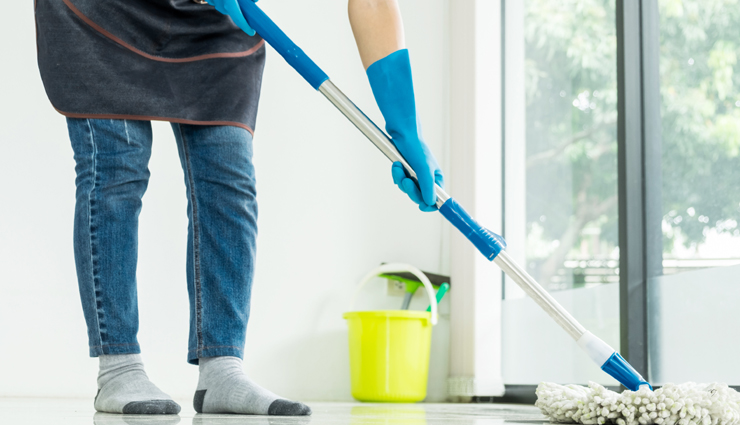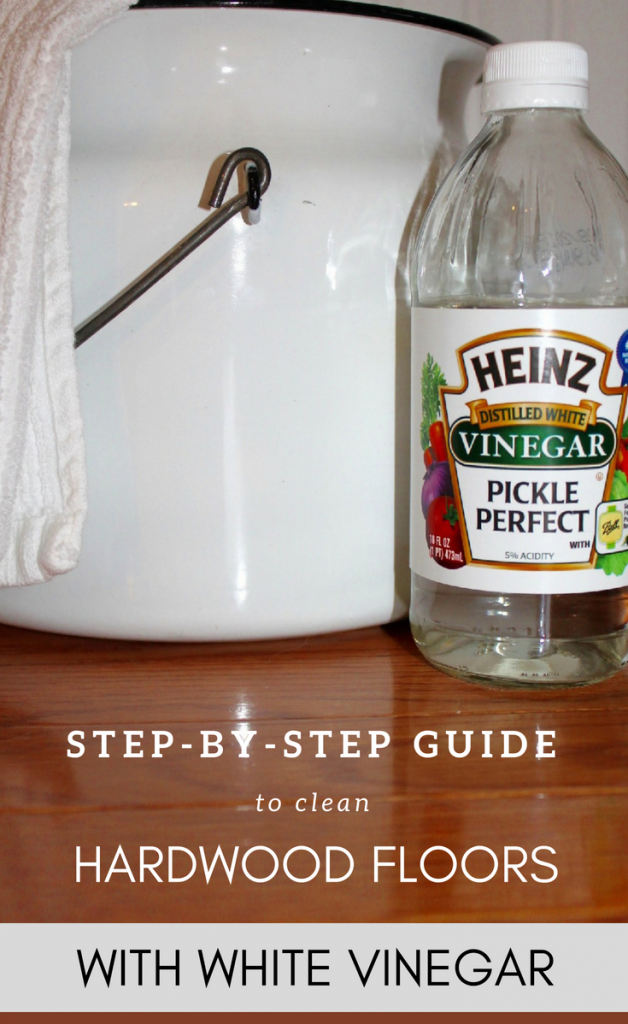Have you ever wondered if that trusty bottle of vinegar lurking in your pantry could hold the key to a sparkling clean floor? It seems like a simple solution, but is it really effective? And more importantly, is it safe for all floor types? The answer, like most things in life, is a little more nuanced than a simple yes or no. Buckle up, because we’re diving deep into the world of vinegar-based floor cleaning.

Image: www.lifeberrys.com
Vinegar, with its acidic nature, has long been touted as a natural cleaning agent. It can be effective against grime, bacteria, and even some stubborn stains. But before you pour it directly onto your hardwood floor, let’s unpack the science behind this cleaning method and explore its pros and cons for different floor types.
The Pros of Using Vinegar For Cleaning Floors
Vinegar boasts a number of advantages as a floor cleaner:
1. Natural and Environmentally Friendly
Vinegar is a natural product, making it a more eco-conscious choice compared to harsh chemical cleaners. It doesn’t contain the volatile organic compounds (VOCs) found in many commercially available cleaners, which can contribute to indoor air pollution. So, you can feel good about using vinegar while minimizing your environmental impact.
2. Cost-Effective
Vinegar is incredibly affordable compared to specialized floor cleaners. You likely already have a bottle in your kitchen, making it a budget-friendly cleaning solution.

Image: cleaninginstructor.com
3. Deodorizing Power
Vinegar’s mild acidity helps neutralize unpleasant odors, leaving your floors smelling fresh and clean. It can also help deodorize carpets and rugs, particularly those susceptible to pet odors.
4. Effective Against Certain Bacteria and Mold
Vinegar’s acidic nature inhibits the growth of certain bacteria and mold, making it a good choice for tackling those pesky spores that can thrive in damp areas. However, it’s important to note that vinegar is not a disinfectant and may not be effective against all types of bacteria.
The Cons of Using Vinegar For Cleaning Floors
While vinegar has its advantages, it’s not a magic potion for every floor type. Here are some drawbacks to consider:
1. Can Damage Certain Floor Types
Vinegar’s acidity can be harsh on sealed wood floors, stone, and some tile finishes. It can strip away protective waxes and sealants, leaving them dull and vulnerable to future damage. For these floor types, a more neutral cleaner is a safer option.
2. Can Leave a Film
Vinegar can leave a sticky residue, especially if it’s not thoroughly rinsed. This can create a hazy film on your floor and attract dirt and dust.
3. Not Always Effective Against Grease and Oil
Vinegar is not a powerful grease-cutting agent, so it may not be the best choice for tackling greasy messes on your floors.
The Best Ways To Use Vinegar For Cleaning Floors
Vinegar can be a safe and effective cleaning option for certain floor types. Here’s a guide on how to use it properly:
1. Dilute It
Never use undiluted vinegar on your floors. Always mix it with water in a ratio of approximately 1 part vinegar to 10 parts water. This will help minimize the risk of damage while still achieving cleaning power.
2. Test an Inconspicuous Area
Before applying vinegar cleaner to your entire floor, it’s a good idea to test a small, inconspicuous area. This will help you observe how your specific floor type reacts to the solution.
3. Rinse Thoroughly
After cleaning, rinse your floors with clean water to remove any vinegar residue. This is particularly important for sealed floors to prevent dulling and discoloration.
4. Avoid Hard-to-Clean Areas
While vinegar can be an effective cleaning agent, it might not be the best solution for heavily soiled areas like grout lines. Consider a more powerful cleaner for those specific areas.
Vinegar Cleaning Recipes for Different Floor Types
Here are some simple vinegar-based cleaning recipes tailored for different floor types:
1. Wood Floors
Ingredients:
- 1/2 cup white vinegar
- 1 gallon warm water
Instructions: Mix the ingredients in a bucket. Mop your wood floors with the solution, rinsing thoroughly afterwards. For heavily soiled areas, you can try a stronger mixture of 1 part vinegar to 5 parts water.
2. Laminate Floors
Ingredients:
- 1/4 cup white vinegar
- 1 gallon warm water
Instructions: Mix the ingredients in a bucket. Mop your laminate floors with the solution, rinsing thoroughly afterwards. Remember to avoid excessive water as it can damage the laminate.
3. Tile Floors
Ingredients:
- 1/2 cup white vinegar
- 1 gallon warm water
Instructions: Mix the ingredients in a bucket. Mop your tile floors with the solution, rinsing thoroughly afterwards. You can even use a diluted vinegar solution to clean grout to remove stains and mildew.
Other Natural Ways to Clean Floors
Vinegar isn’t the only natural alternative to harsh commercial cleaners. Explore these other options:
1. Baking Soda
Baking soda is a gentle abrasive that can help lift dirt and grime from floors. It’s also a good deodorizer and can be used to clean carpets. Create a paste with baking soda and water, apply it to the floor, let it sit for a few minutes, then scrub with a soft-bristled brush.
2. Essential Oils
Add a few drops of your favorite essential oils, like lavender or lemon, to your cleaning solution for a pleasant scent and added antibacterial properties. Remember to use natural, undiluted essential oils.
3. Steam Cleaning
Steam cleaning is a powerful and effective way to sanitize floors without resorting to harsh chemicals. It uses steam to loosen dirt and grime, and it’s particularly effective on carpets and rugs.
Can You Use Vinegar To Clean Floors
Conclusion
Using vinegar to clean floors can be an effective and eco-friendly option, especially for certain floor types. However, it’s crucial to understand its potential drawbacks and to use it properly. Always dilute vinegar, test it in a small area first, and rinse thoroughly after cleaning. By following these tips, you can unleash the cleaning power of vinegar while keeping your floors looking their best. Remember, a little research and caution can go a long way in keeping your floors spotless and your home a haven of cleanliness.

:max_bytes(150000):strip_icc()/OrangeGloEverydayHardwoodFloorCleaner22oz-5a95a4dd04d1cf0037cbd59c.jpeg?w=740&resize=740,414&ssl=1)




